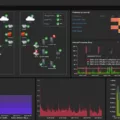Nikto is an open-source web server and web application scanner that can help you identify security vulnerabilities in your web servers. It can scan for over 6700 potentially dangerous files and programs, as well as check for outdated software and version-specific issues. Nikto is an invaluable tool for penetration testing, as it can help you quickly detect any potential threats to your network or systems.
Nikto is a great companion to Nmap, a popular network mapping and port scanning tool. While Nmap discovers live hosts in the target network, Nikto focuses on assessing the vulnerabilities of web servers specifically. It does this by examining the configuration of the server, its directories, and files, as well as any scripts or applications running on it.
In addition to Nmap, Nikto also works hand in hand with Nessus – another popular security tool used for scanning networks for vulnerabilities across all ports on a machine. One advantage of using Nikto is that it can be used to scan only specific web servers instead of having to scan an entire network (as Nessus does).
Nikto is also equipped with libwhisker technology which allows users to perform custom scans with IDS bypassing methods. The current version of our online scan is set to default (no evasion) but users are free to experiment with different settings if they wish.
Overall, Nikto is a powerful security tool that can help you protect your web servers from potential threats. With its comprehensive scans and ability to detect security flaws quickly, it’s an essential asset for any system administrator or penetration tester looking to stay ahead of the curve when it comes to security!

The Function of the Nikto Tool
Nikto is an open-source web server and web application scanner designed to help detect security threats on web servers. It can scan for over 6700 potentially dangerous files and programs, as well as check for outdated versions of web server software or version-specific problems. Nikto can be used to identify misconfigurations, vulnerable CGI scripts, and other issues that could be exploited by attackers. Additionally, Nikto provides detailed information about the target system, including its operating system, web server type and version, installed software, open ports, and more. All of this information can provide valuable insight into the security posture of a website or server.
Comparing Nmap and Nikto
Nmap and Nikto are two different types of penetration testing tools. Nmap is a network scanning tool used to discover active hosts and services on a target network by sending packets and analyzing responses. It can also be used to determine the OS, ports open, services running, firewall rules, and other related information. Nikto, on the other hand, is a vulnerability scanner used to test web servers for known weaknesses. It can scan for outdated software versions, dangerous files or CGIs, server misconfigurations, and more. While Nmap is mainly used for information gathering and mapping out networks, Nikto is primarily utilized for identifying potential security vulnerabilities in web servers.
Comparing Nikto and Nessus
The primary difference between Nikto and Nessus is their scope of vulnerability scanning. Nessus is a comprehensive vulnerability scanner that can detect potential security threats to any type of system, including web servers, while Nikto is specifically designed for detecting vulnerabilities on web servers.
Nessus offers a broad range of scanning capabilities, including port scanning, OS detection, and application fingerprinting. It can also detect vulnerabilities in services and applications running on the server, as well as configuration issues such as default passwords or weak encryption protocols.
Nikto, on the other hand, focuses only on web servers. It scans for various web server-specific vulnerabilities such as cross-site scripting, SQL injection, directory traversal attacks, and more. Additionally, Nikto can scan for outdated software versions or insecure files that may be present on the server.
In conclusion, both Nikto and Nessus are powerful tools for detecting security threats to systems but they differ in their scope of operation; Nessus is suitable for all types of systems while Nikto is specifically designed for web servers.
The Effectiveness of Nikto as a Security Tool
Yes, Nikto is a good tool for users who are looking for basic vulnerability scans. It’s easy to use and can help identify common security issues quickly and efficiently. However, it does not provide a list of vulnerabilities to search for or in-depth reports about the security of your system, which may make it insufficient for more advanced users. Furthermore, Nikto is not regularly updated to keep up with the latest threats, so if you’re looking for something more comprehensive you may want to look into an alternative vulnerability scanner.
The Use of Nikto as a Security Tool
Yes, Nikto is a security tool. It is open-source software used to scan webservers for potential vulnerabilities, such as outdated server software and dangerous files or CGIs. It performs both generic and specific checks, capturing and printing any cookies received. As such, it is a useful tool that can help identify potential security issues in web servers.
Conclusion
In conclusion, Nikto is an open-source web server and web application scanner that is used to assess web servers’ vulnerabilities. It can be used to detect outdated software, version-specific problems, and over 6700 potentially dangerous files/programs. It is not limited to just scanning web servers; it can also scan every port on a machine to find any type of vulnerability. Additionally, custom scans can be initiated using IDS bypass methods from libwhisker and any web server log monitoring or host/network-based intrusion detection should be able to detect a Nikto scan. All in all, Nikto is a powerful tool for identifying potential security risks in any system.








